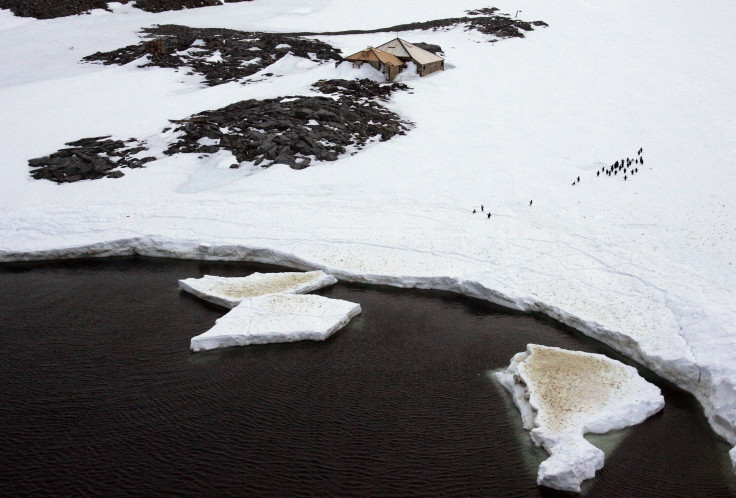Burning Earth’s Remaining Fossil Fuel Would Melt Antarctica: Study

Almost all of Antarctica would melt if Earth’s remaining fossil fuel resources are burned, according to a new study conducted by an international team of researchers. The melting of the icy southernmost continent could also lead to a 160- to 200-feet rise in sea levels in the future, leaving many highly populated areas, including New York City and Washington, DC, submerged.
Antarctica is already losing sea ice. However, researchers said that the region’s future still hugely depends on many factors such as atmospheric warming caused by greenhouse gases, additional oceanic warming perpetuated by climate change and possible countereffects of additional snowfall. The study was published Friday in the journal Science Advances.
“Our findings show that if we do not want to melt Antarctica, we can’t keep taking fossil fuel carbon out of the ground and just dumping it into the atmosphere as CO2 like we’ve been doing,” Ken Caldeira, senior scientist at Stanford University's Carnegie Institution for Science, and the study’s co-author, said in a statement.
Unlike previous studies that had focused on loss of the West Antarctic Ice Sheet, the new study demonstrates how burning coal, oil, and gas could contribute to the melting of East Antarctic Ice Sheet in a much larger scale than previously thought, according to Caldeira.
As part of the study, the researchers used modeling to examine the ice sheet’s evolution over the next 10,000 years, because carbon can persist in the atmosphere for thousands of years after it is released. If carbon emissions continue at current levels for another 60 to 80 years, the West Antarctic ice sheet would become dangerously unstable, researchers said.
The study did not predict greatly increased rates of ice loss for this century, but found that the average rates of sea-level rise over the next 1,000 years could be more than 1 inch per year, leading to about 100 feet of sea-level rise by the end of this millennium.
“The West Antarctic ice sheet may already have tipped into a state of unstoppable ice loss, whether as a result of human activity or not. But if we want to pass on cities like Tokyo, Hong Kong, Shanghai, Calcutta, Hamburg and New York as our future heritage, we need to avoid a tipping in East Antarctica,” Anders Levermann of the Postdam Institute for Climate Impact Research, and a co-author of the study, said.
© Copyright IBTimes 2024. All rights reserved.












